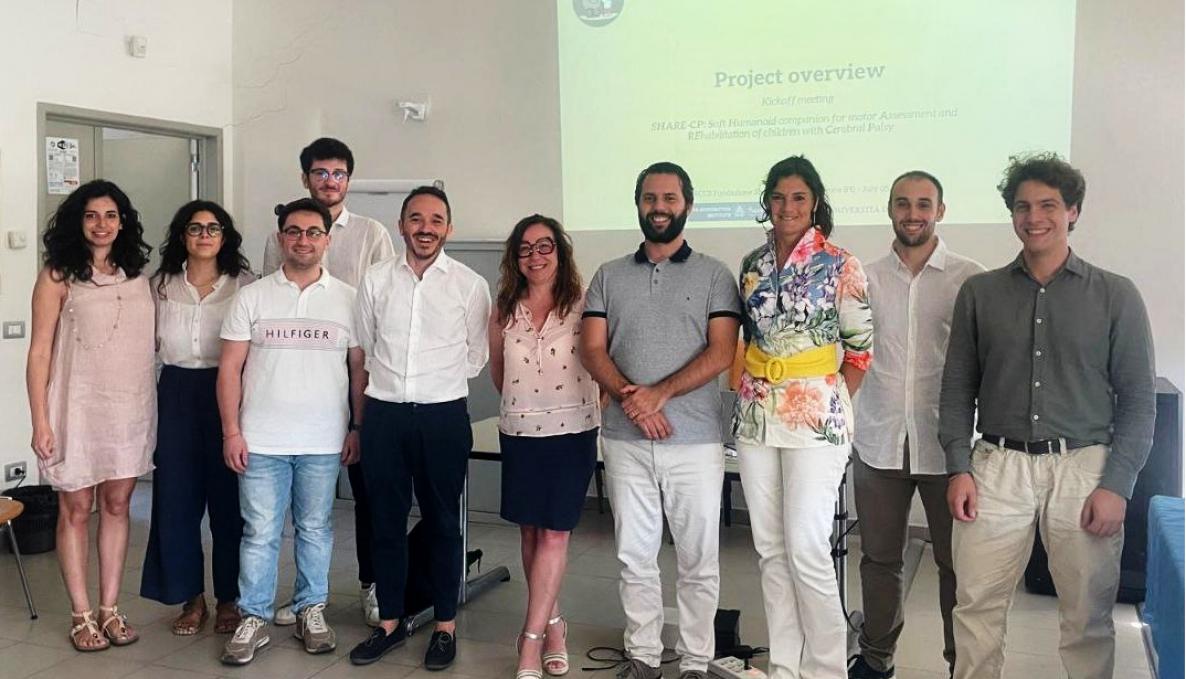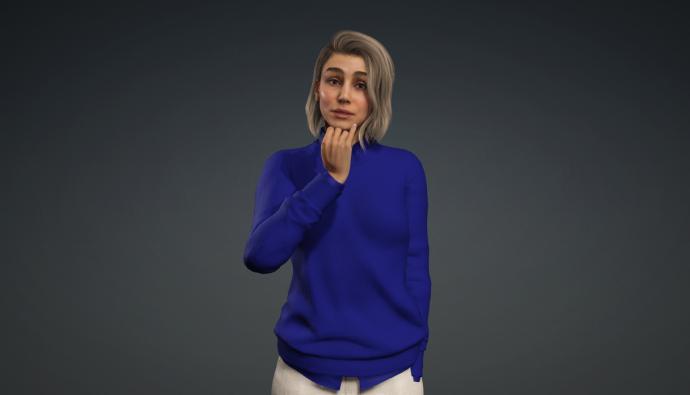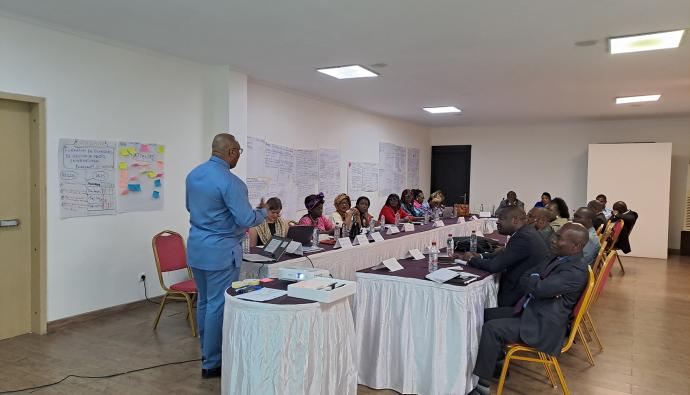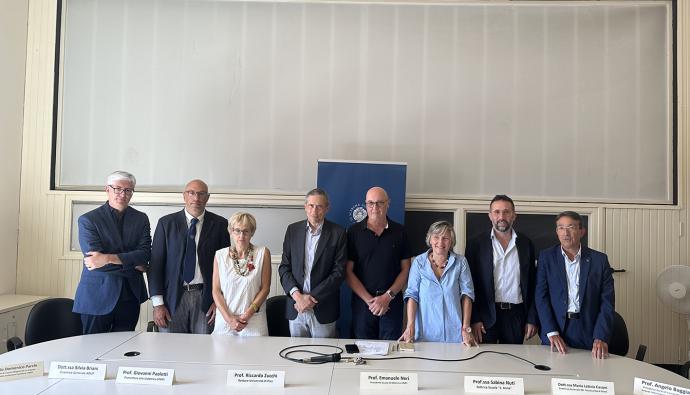SHARE-CP, the soft humanoid robot for the assessment and rehabilitation of children affected by Cerebral Palsy. The project involves the scientific collaboration between Sant'Anna School and IRCCS Fondazione Stella Maris

A customised and non-invasive rehabilitation method, exploiting the potential of robotics to assist and improve the rehabilitation pathways of children suffering from infantile cerebral palsy. The SHARE-CP project aims to develop a soft humanoid robot to improve physical interaction and safety in the rehabilitation pathways of children affected by cerebral palsy, which permanently affects movement and muscle coordination.
The project, financed by the Fondazione Pisa, sees the scientific collaboration between the BioRobotics Institute of the Scuola Superiore Sant'Anna and IRCCS Fondazione Stella Maris, and involves three research laboratories in particular the BRAIR Lab of the BioRobotics Institute, coordinated by Egidio Falotico, the Soft Mechatronics for BioRobotics Laboratory of the BioRobotics Institute, coordinated by Matteo Cianchetti, the Laboratory of INNOVATivE Technologies in Neurorehabilitation (INNOVATE) of the University of Pisa, coordinated by Giuseppina Sgandurra. The project was officially launched with the kick-off meeting held on Friday 5 July at the IRCCS Fondazione Stella Maris headquarters.
A step forward for paediatric rehabilitation robotics
Cerebral Palsy (CP) is a permanent neurological condition that affects movement and muscle coordination. It typically manifests in the early years of life and can have a significant impact on the child’s quality of life. There is currently no cure for CP, so the focus is on managing symptoms and maximizing the child’s abilities.
In this context, the SHARE-CP project aims to develop an innovative soft humanoid robot for the assessment and rehabilitation of children affected by Cerebral Palsy. The use of soft robotics allows the robot to adapt to the child's individual needs, providing real-time feedback and monitoring progress over time.
The ultimate goal is to improve children's quality of life by providing a customised and non-invasive method of rehabilitation.
Nella foto (da sx a dx): Elena Beani (INNOVATE Lab, Università di Pisa), Veronica Barzacchi (INNOVATE Lab, Università di Pisa), Enrico Donato (BRAIR Lab, Scuola Superiore Sant'Anna), Daniele Somma (BRAIR Lab, Scuola Superiore Sant'Anna), Egidio Falotico (BRAIR Lab, Scuola Superiore Sant'Anna), Giuseppina Sgandurra (INNOVATE Lab, Università di Pisa), Matteo Cianchetti (SMB Lab, Scuola Superiore Sant'Anna), Silvia Filogna (INNOVATE Lab, Università di Pisa), Luca Di Loreto (SMB Lab, Scuola Superiore Sant'Anna), Diego Bianchi (BRAIR Lab, Scuola Superiore Sant'Anna)



